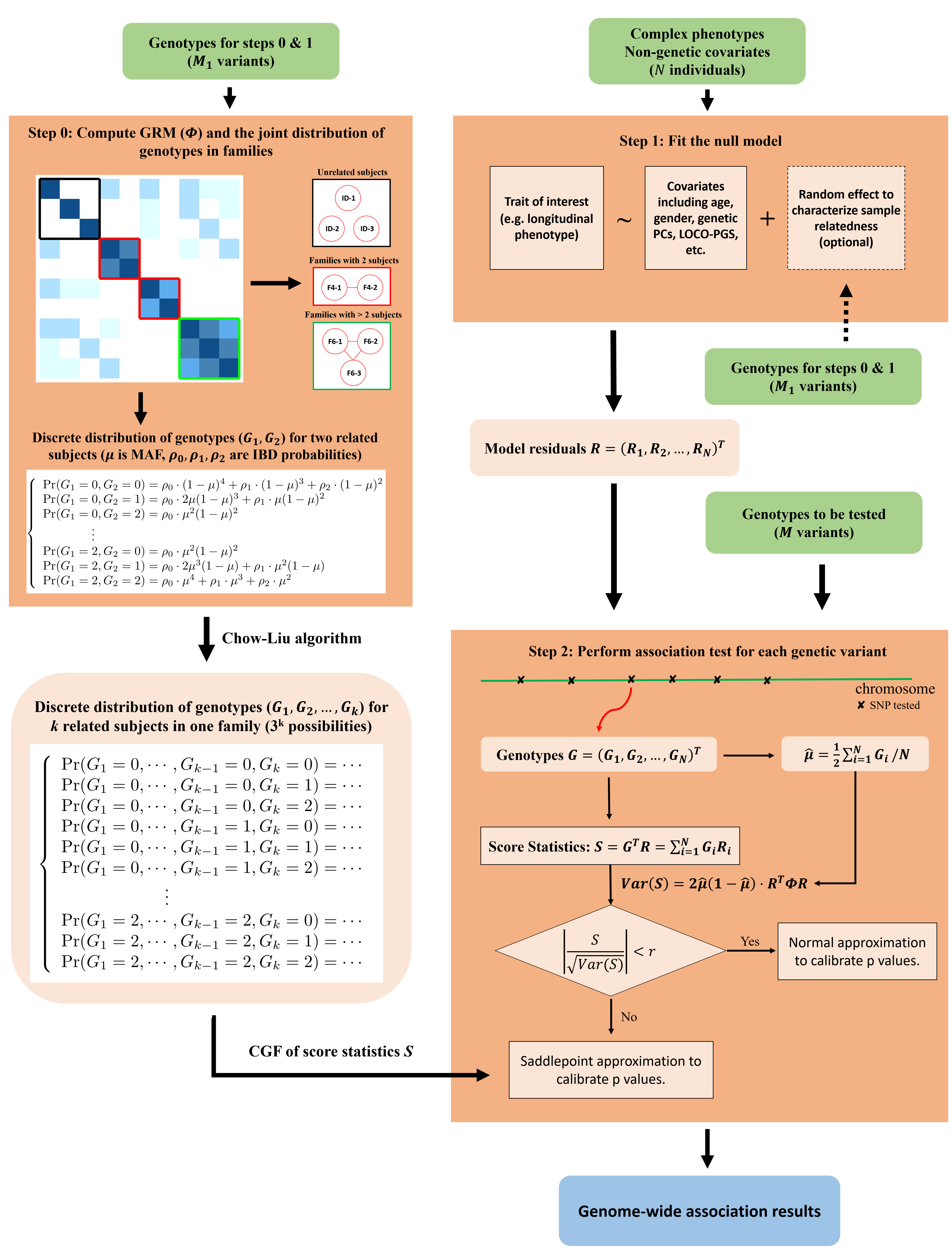Documentation for SPAGRM
SPAGRM is now implemented in the GRAB. Please click here for download.
SPAGRM is a scalable and accurate analysis framework to control for sample relatedness in large-scale genome-wide association studies (GWAS). In the paper SPAGRM: effectively controlling for sample relatedness in large-scale genome-wide association studies of longitudinal traits, we applied SPAGRM to analyze 79 longitudinal traits extracted from UK Biobank primary care data, identifying 7,463 genetic loci, making a pioneering attempt to conduct GWAS for these traits as longitudinal traits.
Like many other popular methods, such as BOLT-LMM, SAIGE, fastGWA, REGENIE, GATE, and POLMM, SPAGRM is also a two-step method to control for sample relatedness in large-scale cohort. It consists of:
-
In step 1, SPAGRM fits a null model to adjust for the effect of covariates on phenotypes and calculate model residuals. It is optional, rather than required, to incorporate the random effect into null model fitting to characterize the sample relatedness.
-
In step 2, SPAGRM associates the trait of interest to a single genetic variant and obtain GWAS results by a retrospective strategy: that is treating the genotypes as random variables. Unlike regular retrospective methods which solely rely on the genetic relationship matrix (GRM), SPAGRM calculates identity by descent (IBD)-sharing probabilities and then employs the Chow-Liu algorithm to approximate the joint distribution of genotypes. Saddlepoint approximation is applied in SPAGRM that can greatly increase the accuracy to analyze low-frequency and rare variants, especially if the phenotypic distribution is unbalanced.
-
To avoid redundant computations in step 2, SPAGRM uses the IBD-sharing probabilities and Chow-Liu algorithm to approximate the discrete joint distribution of genotype vectors in advance (illustrated as step 0).

See SPAGRM: effectively controlling for sample relatedness in large-scale genome-wide association studies of longitudinal traits for more details about the workflow of SPAGRM.